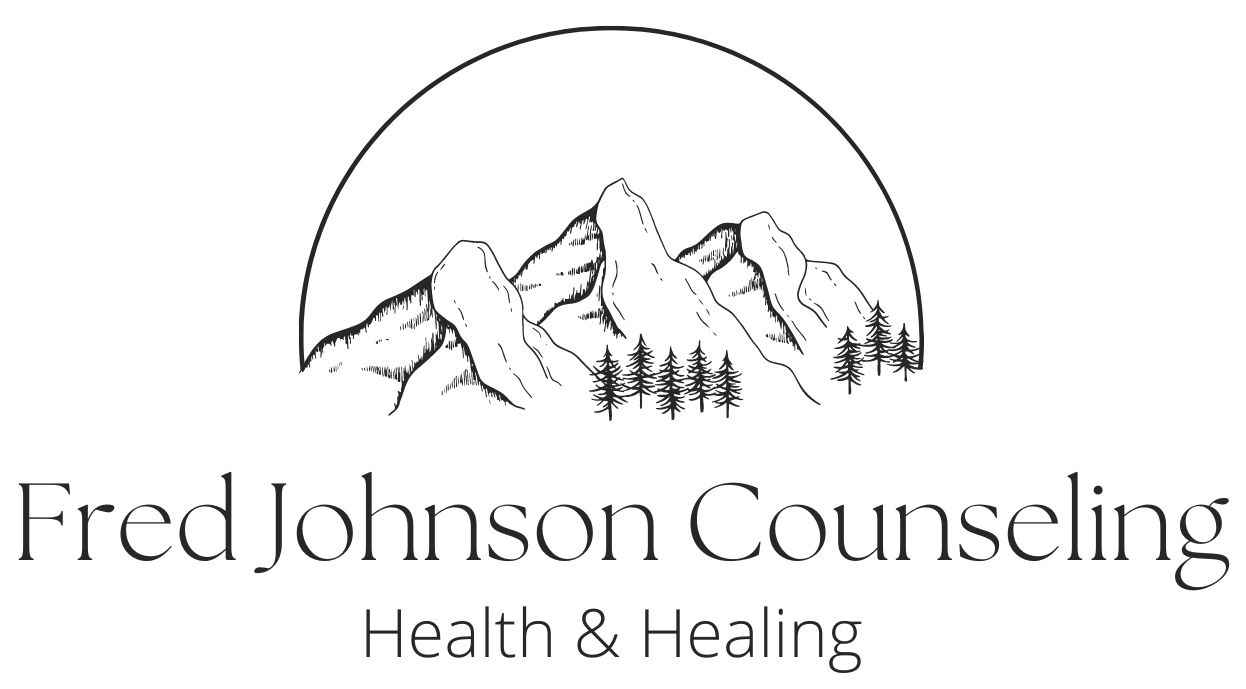April Showers?
Fred Johnson • April 1, 2024
Know what is and isn't in your control.
At the time of posting this, it is the first day of April and here in middle Tennessee spring has fully begun! We have mild winters compared to many places in the world, but by the time spring finally rolls in, you’d think we middle Tennesseans had just escaped the arctic tundra! We welcome the budding trees and new-growth grasses. We endure the waves of pollen collecting on every imaginable surface everywhere. We recite at least once in the month of April the old proverb, “April showers bring May flowers.” I like to imagine we do this to instill the hope that our long suffering through tornado season and seasonal allergies will be rewarded with brighter days and beautiful flowers.
There’s certainly nothing wrong with hope. I recommend it. The key is, in what or whom we place our hope. Hope in a brighter future is just one antidote for worry about it. Unfortunately, I think we all occasionally fall prey to the mounting pressures brought on by changes in our environment. The hope for May flowers can fail to comfort you when the showers of April coming your way include severe thunderstorms, tornados, or hail. These external stressors can certainly shake our internal peace or rob us of our mental health. A major factor that influences how much stress impacts us and our behavior is the location of what we perceive controls our life.
This perception of the location of what controls our life events is called Locus of Control and was termed by Julian Rotters in 1954. He suggested that what we perceive as the underlying main cause(s) of the events in our lives determines a lot about how we respond to stress and challenges both now and in the future. He categorized two main location types: Internal and external. Here's a very basic summary of his brilliant model: to the extent you believe the location of control for your life lies within you (ex: your actions, attitudes, or decisions), or in external forces (Ex: fate, luck, or God), can have a major impact on your life. Everything from how you cope with stress, to deal with set-backs, or even decision making about your own future.
It is important to note, most people fall somewhere between these two extremes. Externalizers is the term for those who feel like the cause or reason for their problem/discomfort/stress is outside of themself, originating from another person or situation. Internalizers believe they are responsible for they current situation and everything that happens is a consequence of their choices. As you can imagine, neither of these extremes is desirable.
Here's an example:
- Event: An email arrives detailing an increased work load without increase in pay.
- Externalizer: "This isn't fair! I'm already stressed out and can barely keep up. They just want to drain every ounce of energy I have. Another nail in my coffin!"
- Internalizer: "Wow, I must be doing a great job! If I keep this up, they are going to promote me for sure. I've just got to keep it up. I can do it."
Now if you read that and thought, "If only I was able to have that internalizer's attitude!" Let me warn you: for those that carry the responsibility of good and bad on their shoulders, failure becomes personal. A healthy balance of the two is suggested.
No matter where you land on this spectrum of Locus of Control, let me give a helpful tip to encourage you to move more towards the middle. It is a simple phrase, credited to Viktor Frankl, "God determines what we go through. We determine how." You and I are certainly not in control of everything that happens to us in life. No one is able to be good enough all the time to prevent tough situations from happening. We must relinquish our impulse to demand control of it all, while also picking up the responsibility to navigate it. When you are facing unforeseen circumstances, remember this quote. Finding balance in who controls what in your life can be freeing.

Most of us don’t want to admit it, but the arrival of October signals the official start to the holiday season. Within the next 91 days, there will be everything from spooky lanterns, stuffed turkeys, and sales catalogues arriving in the mail or inbox on the regular. Parties to attend, events to support, and special “once a year” gatherings will all demand our focus and presence. One thing is for certain, If you’re of adult age with even a mild case of responsibility, you will begin to experience what I call, “Holiday Time-Slippage.” Holiday Time-Slippage is the phenomenon wherein the busier and faster our lives become during the holidays, the less time we have to enjoy the holidays. In trying to do it all, we miss all that we do. Ok, I’ll admit I made that up. I even googled it to see if it was a thing. It’s not. Perhaps I just made it a thing, but more likely it is just a fun play on words that ends with this blog post. In either case, I think it’s important to be mindful of the changing of the seasons and what those signals for many. The 16th century produced a carol of Welsh origin we now know as “Deck the Halls.” Within the lyrics, the phrase “‘Tis the season” has become a popular connotation of the holidays in general. Sometimes we use it as a greeting, coping phrase, or in an excusing manner, because after all, “’Tis the season, right?” What we miss in doing so, is the instructive reply the original lyric provides: “… to be jolly.” To experience a cheerful and happy time. In talking with people daily about their lives, I am reminded that not everyone enters this season with the hope of joy and jolly nature. Life can be hard. Holidays can bring triggers, those sharp painful reminders. The holiday seasons can be an extremely isolating time for many. We need the care of each other in these times. We need connection. We need people in our life who will laugh and love, who will share a moment. Maybe you are the person able to provide that for another. Maybe you’re the person who needs that. If I can remind and encourage you today, that in all your seasons upcoming, allow time to simply be jolly.

Each year, on the first day of August, I remind myself that we are closer to the end of the month than ever before. Each day after, as sweltering humid heat swarms us here in the south, I am reminded that it is now one day closer to the sweet relief of fall temperatures. I’m not sure how I would fair, if by chance, I believed the rampant heat waves of August would never leave. Thankfully, I know seasons come and seasons go. The dreaded drudgery of a hellacious August will soon be gone. The expounding beauty of fall, with leaves changing and cool breezes blowing, will soon arrive. Admittedly, this confession of seasonal distaste is a bit melodramatic. Yet, it serves as a practical example of what is known as “tolerable” stress and an adaptive coping response. Types of stress vary, but the three main categories are “good/positive”, “tolerable”, and “toxic” (1). These categories are not concrete or strictly defined by rules and circumstance necessarily. What is “good” stress for one person, may be “toxic” for another. Throughout our lives, the same stressors can change categories multiple times. Stress levels depend on the degree to which a person perceives control over a stressor or situation and whether they have support systems or resources in place to handle the stressor over their lifespan (2). A flat tire one day may be nothing other than a slight inconvenience. Yet on another day, it may represent all the uncontrollable forces keeping you from arriving on time to an important job interview. An easier way of saying all of this is, when we lose our sense of being (ability to control or make decisions) to a circumstance, we are a susceptible to toxic stress. This is where endurance comes in. I would love to say there is short and simple method to reduce and mitigate all toxic stress in our lives. Unfortunately, this just isn’t so. It doesn’t need to be. Because life, people, the world we live in, are all super complicated. What is important and hopeful: the effects of chronic/toxic stress in the brain and body are responsive to recovery and healing. Let’s talk about endurance as a helper for stress. Endurance, or the ability to withstand hardship or adversity, can be a simple, but effective tool to transition from toxic stress to tolerable stress. Enduring is a mindset of “thriving despite”. Thriving despite the terrible. Living beyond the hurt or difficulty. Healing to be able to accept good again. The difference in the stress types is significant. Remember that our perception plays a major role in which is which. Positive/good stress: normal life challenges such as receiving a promotion, learning a new skill, exercise, or having a child. Here we are allowed goals, enjoy success, and try new things. Choice remains in these. Tolerable stress is usually non-normative. Examples are loss of a loved one, serious illness, or natural disasters. There is a sense of unfairness in this. Often the choice to feel good is removed or feels wrong to do so. Our choice is questioned here. Toxic stress is typical adverse and inappropriate. Over time it can carry heavy physical and psychological consequences. All of life is darkened by this. Seeing good is tinted by what we have been through or currently in. We usually feel there is no choice in these. Abuse, intimate partner violence, Determining in our mind, to endure, withstand, and survive a critically difficult situation can move us from toxic stress to the tolerable type, then eventually the good type of stress. Living to allow good again. If ever there was a sentence that embodied the old phrase, “easier said than done” ---- that one was it. Tragically, it seems toxic stress only makes us good at surviving trauma or the terrible. It limits our ability to enjoy or even to see the beauty in a moment. The healing process allows us to be more human than before toxic stress skewed our view of the world. Talking with a counselor can be a critical part of healing. I hope that perhaps today in reading this, you’ve found a tool to help enduring despite what you’re up against. Notes: 1. https://center.uoregon.edu/StartingStrong/uploads/STARTINGSTRONG2016/HANDOUTS/KEY_49962/TypesofStress.pdf 2. https://www.ncbi.nlm.nih.gov/pmc/articles/PMC2864527/

